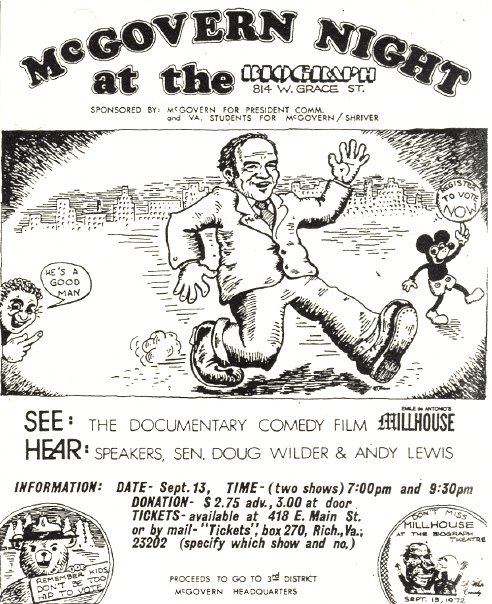"All governments lie, but disaster lies in wait for countries whose officials smoke the same hashish they give out."
-- I.F. Stone
In the immediate aftermath of the first revelations from Bob Woodward’s new book,
“Rage,“ questions are popping up like mushrooms. Let’s start with two that loom over all others, so far:
In the crucial early months of this year, why did Trump choose to “play down” what experts told him back in January and February about the threat of COVID-19? Why did he then call its threat a "hoax" cooked up by Democrats?
Given Trump’s initial reactions to questions raised by Woodward‘s bombshell book, we still don’t know why Trump hid the alarming news of such vital discoveries behind a wall of disinformation. In a nutshell, today Trump’s position is that he didn’t say what we've heard him say on tape, but if he did, it was because he wanted to avoid widespread panic.
Of course, since we know Trump regularly sows the seeds of panic, to do with immigrant invasions, Black Lives Matter protestors, voter fraud, etc., that silly alibi is just a bad joke. Thus, at this point, we, the people, are left to speculate about Trump‘s motives to play down COVID-19‘s threat.
Which is nothing new. After all, leaving us all to speculate about his motives has been at the heart of his power-grabbing strategy since the get-go. By, “us all,” I mean his supporters, his detractors and especially the media. It’s a strategy that spawns endless speculation about why Trump says and does you-name-it. Significantly, it boosts us all into finding pretty much whatever the hell we're looking for. Moreover, it keeps everybody chattering about him endlessly.
OK, maybe Trump was simply believing, as he frequently does, that he could shape the
truth simply by applying the force of his all-powerful personality. In other words, it's sort of like
what the great independent journalist, I.F. Stone, was talking about in the quote from him the precedes this piece.
Then, speaking of speculation, we have the brewing controversy over what were Woodward’s responsibilities, once he uncovered what Trump knew about COVID-19 months ago. Surely Woodward, the legendary journalist, knew that he was sitting on information that would make big news. He also must have known some folks would say that in the national interest he should have made the tapes public sooner.
Maybe last month? Maybe in June or July? Maybe when?
Since Woodward’s interviews with Trump took place over several months, the question of when he should have blown the whistle is bound to get amplified in the coming days. Then again, if he had done it in February or March, before Trump had spent crucial weeks lying to the public, before the infections and death numbers got to be as alarming as they became in May, I’m not so sure how much impact it would have had.
Plus, Woodward obviously wanted to continue the interview process, hoping to get more info. After all, he was gathering it for a book, not for a news story.
Looking back on Woodward’s decision, and weighing the events of the last six months, it's easy to see he has been riding on the horns of a dilemma for a good while. His thorough explanation to answer some difficult questions about his own decisions ought to come soon. In fairness, this much we already know: The duties of journalists -- to reveal what they discover, pronto, or to never reveal it -- have been argued about for a long time, especially during times of war or crisis.
Nonetheless, some people are already saying Woodward is just as guilty as Trump, which to me seems to be a rush to overreact. Going forward, we'll see how long Woodward's guilt for not being a whistle-blower is a big part of the story. And, we're bound to be left to speculate aplenty about the next stop-the-presses revelation, then the next and so on, between now and election day.
Me?
I'm still wondering how many Republicans in the U.S. Senate would go on record to scold Trump, roundly, should he shoot one of his enemies on 5th Avenue and then brag about what a damn good marksman he is.
-- Art and words by F.T. Rea




